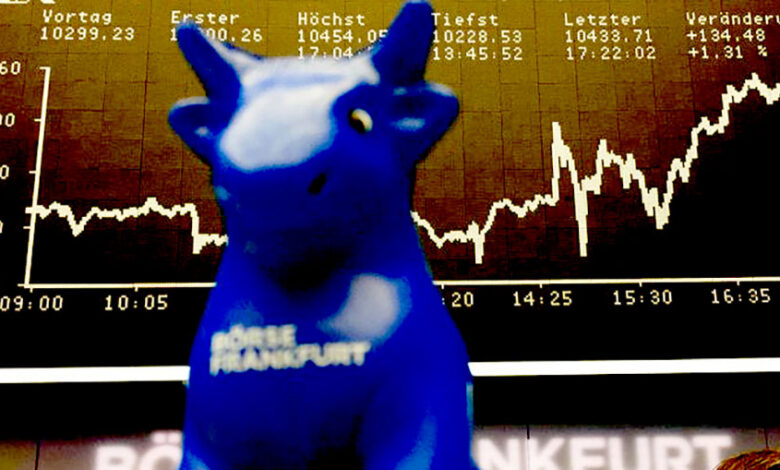European stock futures are mostly flat; caution is advised ahead of key economic data.

European stock markets are expected to open flat on Monday, with investors wary at the start of a week that includes the release of key Eurozone activity data as well as the minutes from the previous Federal Reserve meeting.
At 02:00 ET (07:00 GMT), the DAX futures contract in Germany was 0.1% lower, while the CAC 40 futures contract in France was 0.1% higher, and the FTSE 100 futures contract in the United Kingdom was 0.1% higher.
The United States’ President’s Day holiday on Monday is likely to limit trading volumes in Europe, but investors will also be wary of taking strong positions ahead of some important regional economic data.
The week’s highlight will be Tuesday’s flash PMI data for February, which will show how well the Eurozone economy is doing after unexpectedly growing in the fourth quarter of 2022.
On Wednesday, Germany’s Ifo Business Climate Index will show how the region’s largest economy is dealing with the energy crisis, while the EU will also release final January inflation figures on Thursday, which will be scrutinised after delayed German data was omitted from the first estimate.
Officials at the ECB have repeatedly expressed concern about persistent underlying inflation.
Across the pond, the minutes from the Fed’s most recent meeting will be scrutinised on Wednesday amid renewed uncertainty about how high interest rates may eventually rise, following data released last week that indicated inflation is proving to be more sticky than policymakers had hoped.
In other news, China’s central bank held interest rates steady earlier Monday, tensions between Beijing and Washington remained high over the alleged Chinese spy balloon and potential Russian aid, and North Korea reportedly fired three ballistic missiles off its east coast on Monday.
Oil prices rose on Monday, reversing last week’s losses, as traders focused on potential supply shortages as the year progressed, despite optimism about China’s demand recovery.
Russia plans to reduce oil production by 500,000 barrels per day in March in response to Western price caps on its oil and oil products.
Furthermore, the Organization of Petroleum Exporting Countries and Allies, or OPEC+, announced in October that it would reduce oil production targets by 2 million barrels per day until the end of 2023.
This decrease in supply comes as China’s oil imports are expected to reach an all-time high in 2023 as the world’s largest crude importer recovers from its severe COVID restrictions.
By 02:00 ET, US crude futures were 0.7% higher at $77.11 per barrel, while Brent futures were 0.8% higher at $83.64.
Both benchmarks fell around 4% last week on fears that more Federal Reserve interest rate hikes will dampen economic activity in the United States, the world’s largest consumer.
Furthermore, gold futures rose 0.1% to $1,852.40/oz, while the EUR/USD fell 0.1% to 1.0690.





